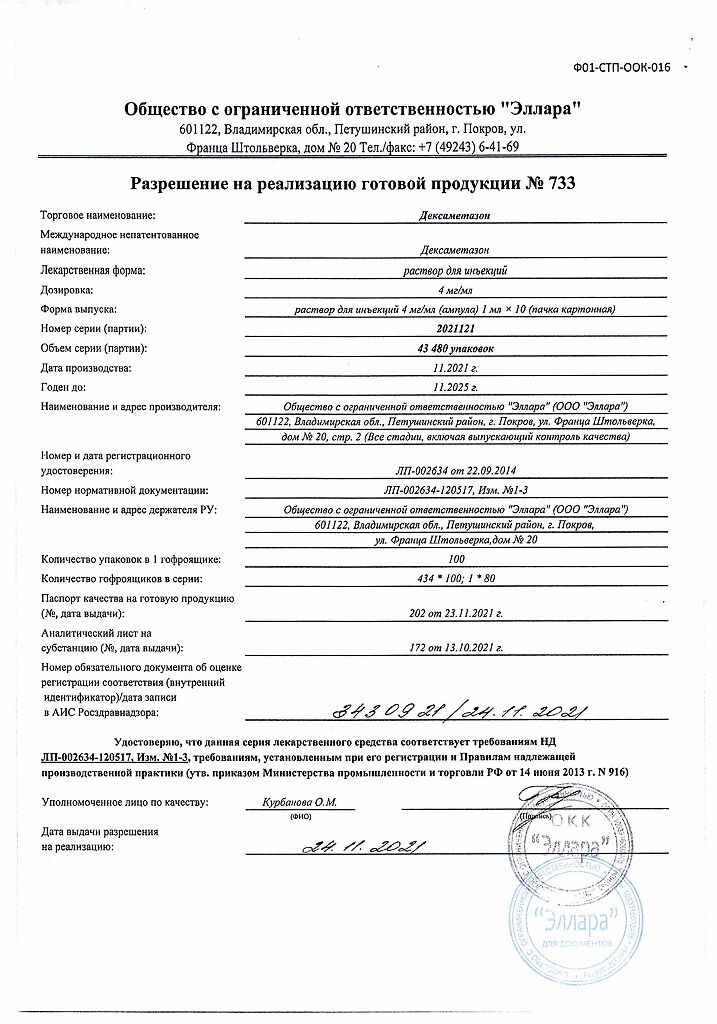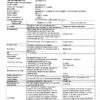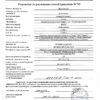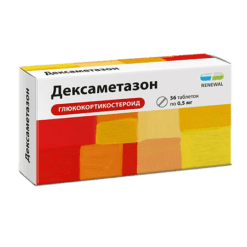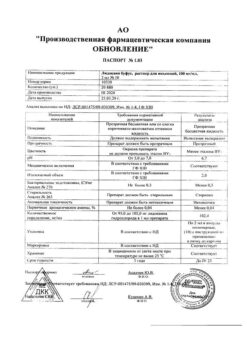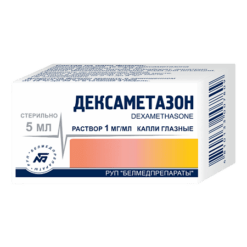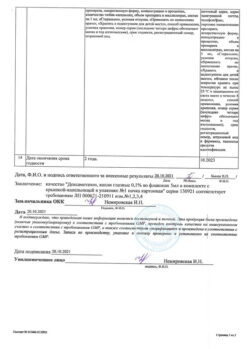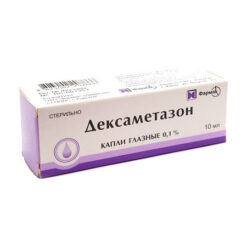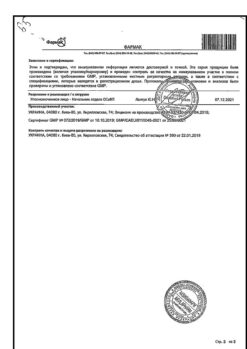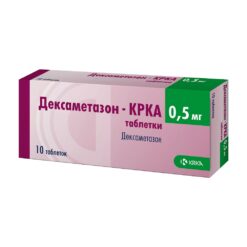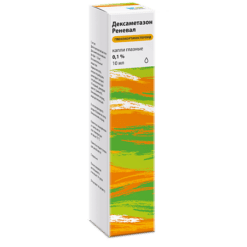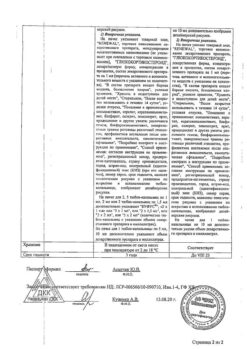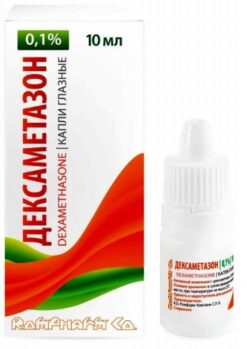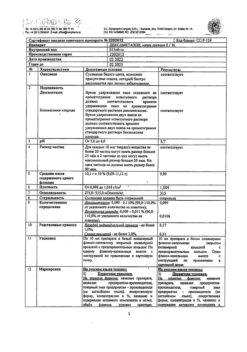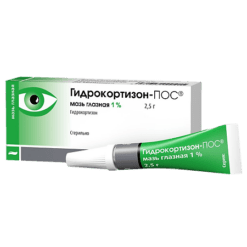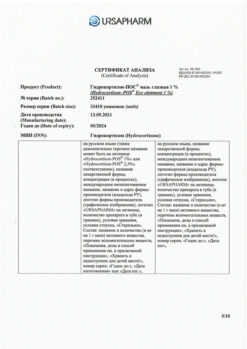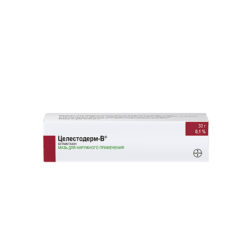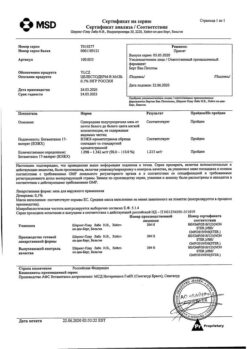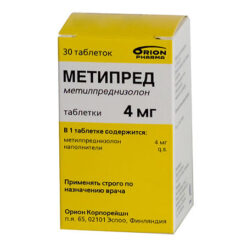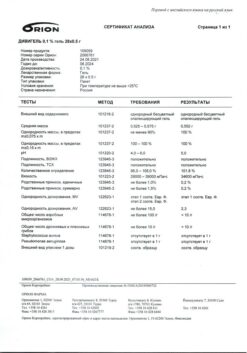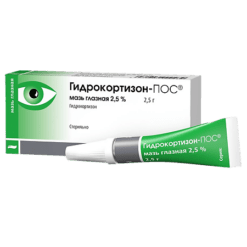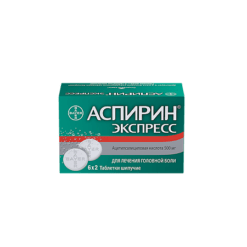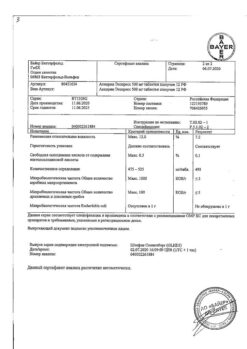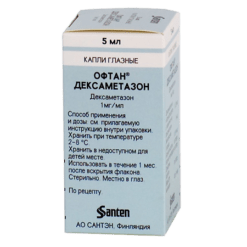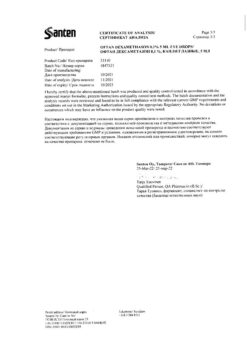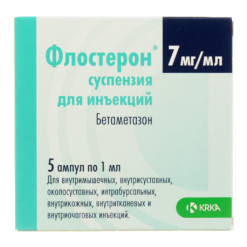No products in the cart.
Dexamethasone, 4 mg/ml 1 ml 10 pcs
€3.37 €3.00
Description
Synthetic glucocorticosteroid is a methylated derivative of fluoroprednisolone. It has anti-inflammatory, anti-allergic desensitizing, antishock, antitoxic and immunosuppressive effects.
Interacts with specific cytoplasmic receptors and forms a complex that penetrates the cell nucleus and stimulates mRNA synthesis; the latter induces formation of proteins, including lipocortin that mediate cellular effects. Lipocortin inhibits phospholipase A2, inhibits release of arachidonic acid and inhibits biosynthesis of endoperoxides, prostaglandins, leukotrienes that contribute to inflammation, allergy and other processes.
Protein metabolism: decreases the amount of protein in plasma (at the expense of globulins) with an increase in albumin/globulin ratio, increases the synthesis of albumin in the liver and kidneys; increases protein catabolism in muscle tissue.
Lipid metabolism: increases the synthesis of higher fatty acids and triglycerides, redistributes fat (fat accumulation mainly in the shoulder girdle, face, abdomen), leads to hypercholesterolemia.
Carbohydrate metabolism: increases absorption of carbohydrates from the gastrointestinal tract; increases activity of glucose-6-phosphatase, leading to increased glucose flow from the liver into the blood; increases activity of phosphoenolpyruvate carboxylase and synthesis of aminotransferases, leading to activation of gluconeogenesis.
Antagonistic action in relation to vitamin D: “washout” of calcium from bones and increase of its renal excretion.
Anti-inflammatory effect is associated with inhibition of eosinophils release of inflammatory mediators, induction of lipocortin formation and reduction of mast cells producing hyaluronic acid, reduction of capillary permeability, stabilization of cell membranes and organelle membranes (especially lysosomal).
Antiallergic effect is caused by reduction of the number of circulating eosinophils, resulting in reduced release of immediate allergy mediators; reduces the effect of allergy mediators on effector cells.
Immunosuppressive effect is conditioned by inhibition of cytokines release (interleukin 1 and interleukin 2, gamma interferon) from lymphocytes and macrophages.
Inhibits synthesis and secretion of adrenocorticotropic hormone and secondary synthesis of endogenic glucocorticosteroids. Its specific action is significant inhibition of pituitary function and almost complete absence of mineralocorticosteroid activity.
Doses of 1-1.5 mg/day inhibit adrenal cortex function, biological half-life is 32-72 hours (duration of inhibition of hypothalamic-pituitary adrenal cortex).
In terms of glucocorticosteroid activity 0.5 mg of dexamethasone corresponds to approximately 3.5 mg of prednisone (or prednisolone), 15 mg of hydrocortisone or 17.5 mg of cortisone.
Pharmacokinetics
In blood it binds (60-70%) with specific protein – transporter – transcortin. It easily passes through the histohematic barriers (including the blood-brain barrier and the placental barrier). A small amount is excreted with breast milk. Metabolized in the liver (mainly by conjugation with glucuronic and sulfuric acids) to inactive metabolites. It is excreted by the kidneys.
Indications
Indications
Active ingredient
Active ingredient
Composition
Composition
How to take, the dosage
How to take, the dosage
Interaction
Interaction
Special Instructions
Special Instructions
Contraindications
Contraindications
Side effects
Side effects
Overdose
Overdose
Similarities
Similarities
Additional information
| Weight | 0.050 kg |
|---|---|
| Shelf life | 2 years. |
| Conditions of storage | In the dark place at a temperature of 5 to 25 ° C. Keep out of reach of children. |
| Manufacturer | Ellara, Russia |
| Medication form | solution for injection |
| Brand | Ellara |
Other forms…
Related products
Buy Dexamethasone, 4 mg/ml 1 ml 10 pcs with delivery to USA, UK, Europe and over 120 other countries.




